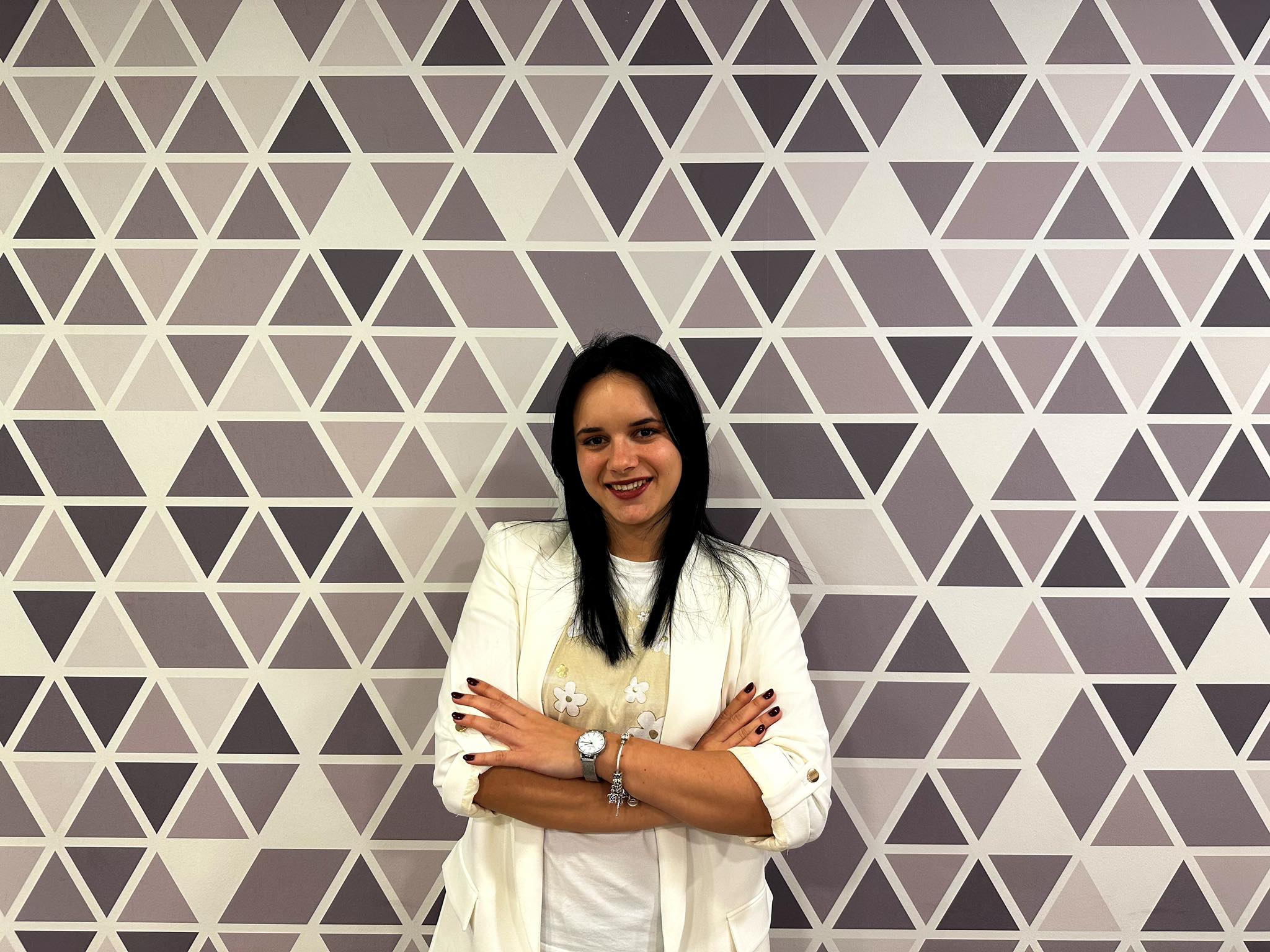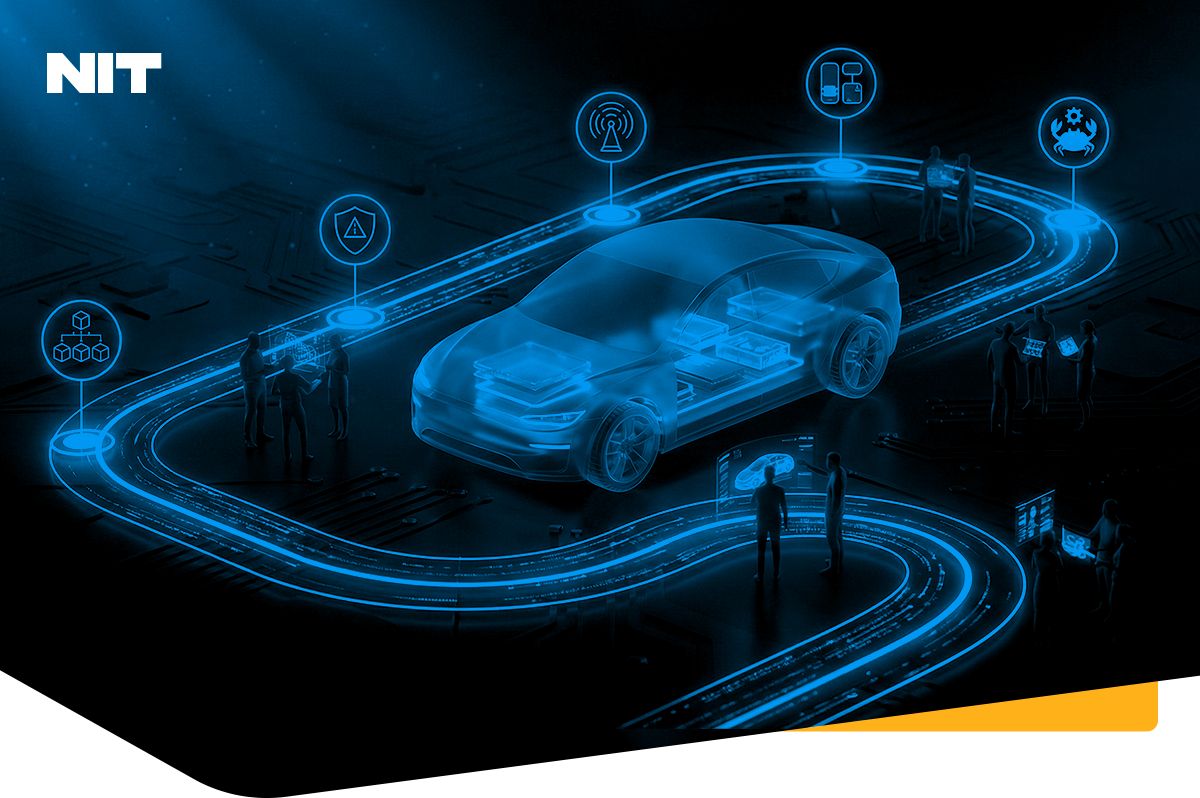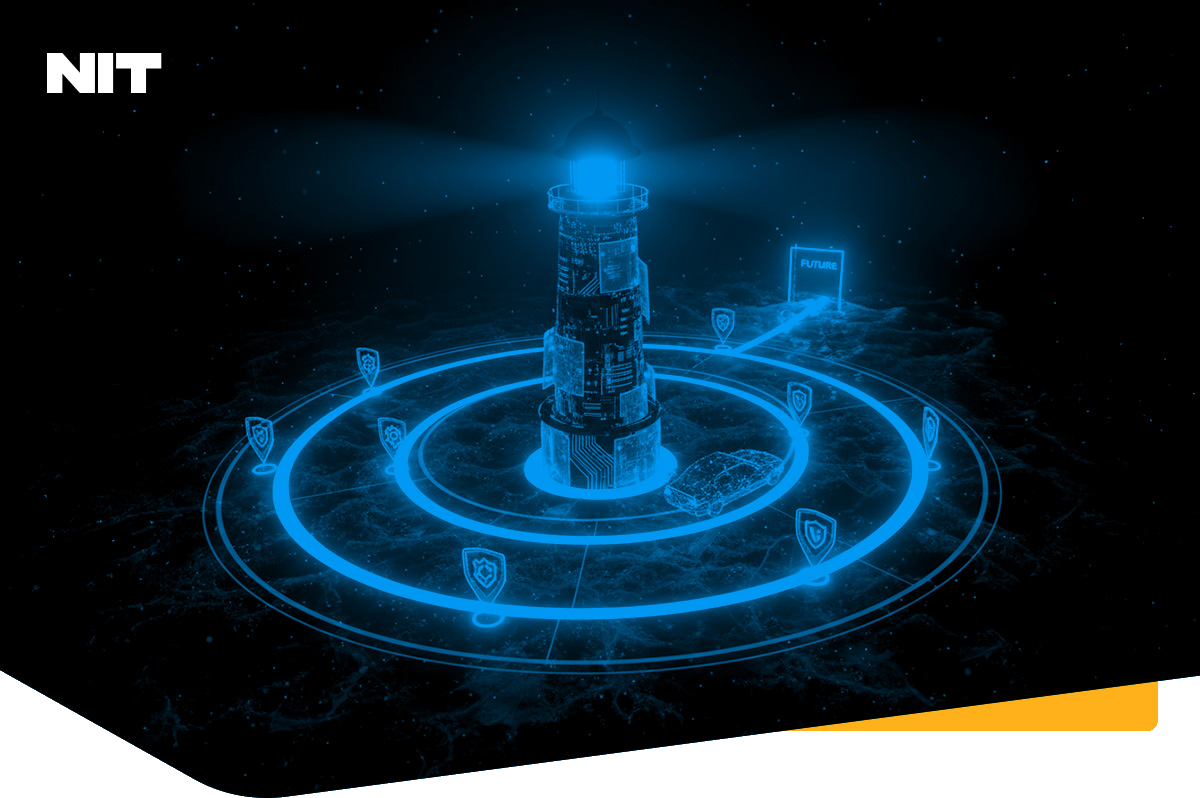
Milica Matić is one of the teaching assistants at NIT Academy. Her superpower is that she teaches course participants a programming language that is applicable almost everywhere. We talked to her about Python and the many advantages of this programming language.

You are a teaching assistant on a Python course at NIT Academy. What are the experiences of the participants, do you get any feedback from them?
Yes, I am a teaching assistant on two Python courses at NIT Academy – basic and advanced courses. In the basic course, we introduce Python programming to attendees with prior experience in programming in any other language but Python. On the other hand, the advanced course covers some slightly advanced Python programming techniques for attendees already familiar with it. As for our knowledge, participants are mostly satisfied with the course. The good thing is that there are always good suggestions for new topics that could be covered, therefore we always try to expand the material, even during the course, if the agenda allows us to do so.
Why might NIT's Python certificate course be the perfect choice for our students? What makes our Python course different from others?
In my opinion, the good thing is that participants can choose from a basic and advanced course based on their previous experience. The student who successfully finishes the basic course can always enroll in the advanced course and extend their knowledge even further.
I think that our adaptation to a participant's needs is our advantage and is what makes our Python course different from others. We have a list of topics we are covering, but after every instance, we try to get feedback from participants on what they would like to be covered and in the next instance we adapt the topics if possible. If a bigger group is enrolled, we try to adjust the course to a reasonable extent, according to the needs of the group.
Maybe the most important difference is that instructors and teaching assistants are related to both industry and academia (professors and TAs), and this I consider as very useful to participants. On the one hand, you are being taught by someone with a strong background coming from the University, and with significant experience from the industry on the other.
Does the industry change at all? Do you upgrade your teaching/practice materials in accordance?
Of course! The course topic is extensive, therefore we must always adapt to the newly released Python features. As I mentioned, we always try to listen and adapt the themes to the group's needs. Sometimes we change the existing topics or even add a new topic if we see that many participants are showing interest in something that is not covered in the course.
Python has been in the top 4 languages of the TIOBE index for quite some time now. Is that surprising to you? And why not?
Yes, Python is one of the most popular languages to use, and it doesn’t surprise me at all! Mostly because of its easy-to-learn syntax. When we start to learn a new programming language- syntax is the first thing that we learn. If it is somehow human-readable and easy to congest, it will be easier for us to accept it. Not to mention, it is more reliable than most popular programming languages and it can be used on various platforms without any performance loss. One of the most important Python advantages, for me, is the growing community and multitude of features and developed libraries that are well-maintained.
When we say that Python is used literally everywhere, what does that mean?
It means precisely it – it is used everywhere. Python is very versatile, it is used for nearly everything, from automation and scripting, software testing, gaming, and web development, to data analysis and machine learning. It is platform agnostic, so it can be (and it is) used on cheap, available platforms (like Raspberry PI) for implementing hobby project ideas, such as home automation projects. Because it is easy to learn, Python is used by many non-programmers in everyday tasks such as organizing tasks, filling forms, keeping track of the stock market, etc.
What motivated you the most to learn and then teach Python?
In the course on complex algorithms from my University, where I am also a teaching assistant, we were asked to choose the programming language and at that point, it was logical to go with Python. So, I was somehow learning and teaching Python at the same time. That was about 5 years ago and Python has already been accepted in most industry areas. Furthermore, I’ve started using it in industry projects and then decided to share my knowledge and experience with other colleagues from more or less related industry areas.
Can you tell us some fun facts about this program that we can't read in books or on the web?
Open a Python IDLE and type “import antigravity”. :)

Another interesting thing is that, contrary to what you would believe, the language is not about the snake. In fact, it is about Monty Python, a British comedy troupe, whose big fan was Python’s creator, Guido van Rossum.
When is the next enrollment and start of the course?
The next instance of both basic and advanced courses starts on the 28th of November.
What would you say to future students?
We are always looking forward to greeting new people in our NIT community. In every course instance, we meet a lot of eager students willing to learn. There are a lot of occasions when we learn something new from students' interests and questions. Therefore, if you are interested in learning a new programming language or learning about consumer electronics and automotive technologies, check out our courses.



